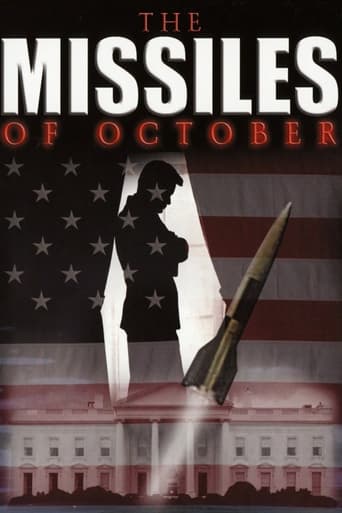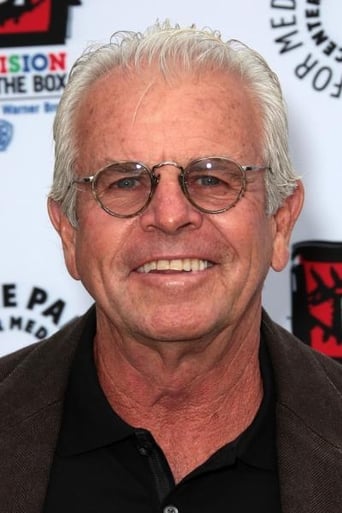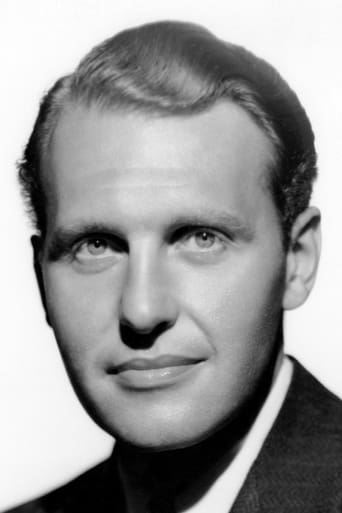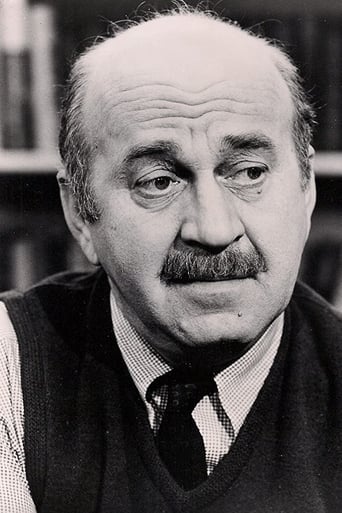The Missiles of October (1974)
Based in part on Robert F. Kennedy's book, "Thirteen Days," this film profiles the Kennedy Administration's actions during the Cuban Missile Crisis.
Watch Trailer
Free Trial Channels
Cast


Reviews
Sadly Over-hyped
everything you have heard about this movie is true.
The film was still a fun one that will make you laugh and have you leaving the theater feeling like you just stole something valuable and got away with it.
It isn't all that great, actually. Really cheesy and very predicable of how certain scenes are gonna turn play out. However, I guess that's the charm of it all, because I would consider this one of my guilty pleasures.
The Cuban Missile Crisis of Oct. 16-28, 1962, was the closest the world came to nuclear war. It began when the U.S. discovered that the Soviet Union was building nuclear missile sites in Cuba. The U.S. set up an ocean blockade to stop any further Russian war shipments going to the country. The Soviet-Cuban work continued on 35 missile sites. When the first became operational, the U.S. was ready to bomb the sites and launch a ground attack on Cuba. The crisis ended when Soviet Premier Nikita Khrushchev capitulated. He agreed to withdraw all Soviet missiles from Cuba in exchange for the U.S. promise never to invade Cuba. People should be wary of sources that describe the basis for the event otherwise. The Encyclopedia Britannica article describes it succinctly. It says it was a "major confrontation that brought the United States and the Soviet Union close to war over the presence of Soviet nuclear-armed missiles in Cuba.""The Missiles of October" is a TV movie of the event, based on Robert Kennedy's 1969 book, titled "Thirteen Days." This is a fine dramatization with a huge cast of prominent actors. They portray key roles of people involved in the crisis. They include Pres. John F. Kennedy, White House staff, the Cabinet, and congressional leaders. Others are top military officers and members of the press. On the Soviet side are Premier Nikita Khrushchev and other Russian leaders. This film is a good historical look at the event and near worldwide disaster. It shows the struggles of government leaders as they wrestle with the crisis and try to establish détente. It gives a good picture of the stress of those in authority dealing with crises, including the differences of views among people. For generations long after the Cold War, this film can be a poignant reminder of a scary time in history. The world truly came very close to nuclear war and disaster. All of the cast do a fine job in portraying the key figures of the time. The production is very well done. It shows the details of the crisis from both sides of it, although much of the Soviet internal concerns must be conjecture on Kennedy's part.
I came home from school one day and my mother said, "We may be at war!" The standoff between the Kennedys and Nikita Krueschev as missiles were on their way to Cuba is one of the single most dramatic events we have ever faced. It could have easily led to annihilation. The casting in this made for television event is outstanding. Each of the actors must have been honored to play the real life characters, because they hit the ball solidly. William Devane and Martin Sheen are wonderful as the Kennedys. We have to remember that while our leaders have an obligation to us, these men were filled with fear and trepidation. Howard de Silva makes a terrific Russian premier as the volatile Krueschev. But what works the best is a tension that is palpable throughout. I don't know if there has ever been a more outstanding portrayal of real events done in any form. If you ever get a chance to see this, don't miss it.
First, here's some technical information. "The Missiles of October" is a 1974 or '74 ABC-TV/Viacom television movie running at 155 minutes, probably a miniseries, shot on videotape in NTSC. The DVD version is an NTSC version. The picture quality of the DVD is extremely good considering the age and means of the production.I'm not sure about some of the information about what written material this movie was based on, but immediate informal research concludes that this movie was based partly on John F. Kennedy's book "Thirteen Days" about the Cuban Missile Crisis. If you remember this name somehow, it's probably due to the book's remake into a movie in 2000 (premiered in 1999) with the same title by director Roger Donaldson, with Kevin Costner in a co-starring role.The name is a reference to a book entitled "The Guns of August," a book about the Great War (a.k.a. WWI) addressing problems of the combination of the "real politik" philosophical paradigm, the German words for realism--a study of politics from the linking of the world through self-interest and armed conflict--with the virtue of the paradigm of idealism. Since the Cuban Missile Crisis occurred in October, the movie's name, "The Missiles of October," is a comment on the former to denote the potential seriousness of the incidents in this crisis which were mainly in the drama of JFK's decisions to avert nuclear war against the communistic U.S.S.R.The movie has an exceptional cast, and a large one, with actors with long and noticeable careers in cinema long before 1973, even in the days of black-and-white. Otherwise, Soviet Premier Khrushchev is played by Howard DaSilva, who had memorably co-starred in the film version of the stage musical "1776" playing Ben Franklin, the delegate and inventor; in Joseph Losey's film "M"; and, in "The Great Gatsby" with Robert Redford. Also, John Kennedy's brother Robert is played by Martin Sheen, and he had went on to star in "Apocalypse Now" and several other films.The thirteen days of the Cuban Missile Crisis has since become a subject of study, and this film should be recommended to anyone studying this moment of history, because it is a very literary translation, playing out with the drama being solely located in the scripts themselves: both the screenplay script and the actual international relations scripts from which this movie seems to borrow so much.In comparison between this 1974 television movie to the 2000 film version, the t.v. movie is very talky, but still manages quite well to pull off the drama which is mostly in the script. The film version has the same dramatic themes obviously, but they are much more well-funded with expensive shots of military crafts both air and sea, an even larger cast, and never-before-seen footage of real nuclear explosions, this time in beautifully full color film rather than the black-and-white stock for the videotaped t.v. movie. The theatrical film version lacks the character of the Soviet Premier, and so it seems much less "talky" than the t.v. version. The t.v. version had already made JFK as the central figure only to tell the story in dramatic sequence rather than in defense of him since it is based on JFK's book, so his characterization is like a lion, as this method is the best way to tell the story that is virtually his anyway. If it had not done this with his perspective, it would've decreased the suspense. The television movie deserves a lot of credit for being able to maintain that suspense through the excellent cast and script, much of which is taken from historic speeches. Ultimately, the t.v. movie is about how JFK had de-pressurized the system, where the film version does this much more in such a way as to imprint an image of JFK in memory.In result of the historical events as they are portrayed in the t.v. movie, the JFK character mentions his own lack of air support in the Bay of Pigs invasion. It connects the Soviet Premier's placement of missiles in Cuba as a partial belief of the impotence of a U.S. president that is younger than his first son. Nevertheless, with JFK responding by cutting off Cuba from the Soviets, the Americans and the Soviets begin towing the line, in addition to the nuclear threat, as JFK is not only aware of the nuclear missiles the Soviets have placed in Cuba, but is threatening to attack on the moment those missiles become operational. Finally, after military maneuvers and the sole casualty of an American spy plane, the two leaders finally defuse the situation on agreement, in-turn avoiding nuclear war.Considering history outside of the movie, it could be theorized that the Bay of Pigs, the Cuban Missile Crisis, the subsequent removal of a U.S. base in Turkey, and a decision to remove troops from Vietnam had been reasons for a CIA retaliatory assassination of JFK, as it had commonly done so in covert "black" operations around the world. And so, this movie has significance from a perspective of international relations history, additional to the events of the movie, in that time period where these things happened. The movie seems very close in its historical reference, and the spoken words are from speeches of the political figures represented in this movie.
Generally very good, but "kennedy-friendly", that is, JFK comes out the consumate crisis-manager, when in reality nobody was in control of events (JFK and Khrushchev truly were "sleepwalking through history").To be fair to the makers of the film, the script is based on available documents in 1974. Nowadays, we know that Kennedy explicitly traded existing US bases in Turkey for the USSR bases in Cuba -- something that was denied for years -- and that the Russians had tactical nuclear weapons in Cuba to defend against invasion; which would have immediately turned into a direct confrontation into the nuclear realm. In reality, the Cuban Missile Crisis seems to have been "won" (narrowly) by the Soviets -- although Khrushchev's career didn't survive it (but Castro's certainly did :-)Wonderful work by William Devane as JFK (Martin Sheen as RFK has a little more trouble with the accent, but the two of them portray the personalities of the two men very well), but perhaps the best portrayal of all is Howard da Silva as Nikita Khrushchev. Very nice casting choices (and performances) for pretty much every player. Long, but thorough.








